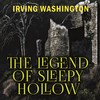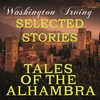Kitabı oku: «Wolfert's Roost, and Miscellanies», sayfa 2
In a little while, this debateable land was overrun by predatory bands from either side; sacking hen-roosts, plundering farm-houses, and driving off cattle. Hence arose those two great orders of border chivalry, the Skinners and the Cowboys, famous in the heroic annals of Westchester county. The former fought, or rather marauded, under the American, the latter under the British banner; but both, in the hurry of their military ardor, were apt to err on the safe side, and rob friend as well as foe. Neither of them stopped to ask the politics of horse or cow, which they drove into captivity; nor, when they wrung the neck of a rooster, did they trouble their heads to ascertain whether he were crowing for Congress or King George.
While this marauding system prevailed on shore, the Great Tappan Sea, which washes this belligerent region, was domineered over by British frigates and other vessels of war, anchored here and there, to keep an eye upon the river, and maintain a communication between the various military posts. Stout galleys, also, armed with eighteen-pounders, and navigated with sails and oars, cruised about like hawks, ready to pounce upon their prey.
All these were eyed with bitter hostility by the Dutch yeomanry along shore, who were indignant at seeing their great Mediterranean ploughed by hostile prows; and would occasionally throw up a mud breast-work on a point or promontory, mount an old iron field-piece, and fire away at the enemy, though the greatest harm was apt to happen to themselves from the bursting of their ordnance; nay, there was scarce a Dutchman along the river that would hesitate to fire with his long duck gun at any British cruiser that came within reach, as he had been accustomed to fire at water-fowl.
I have been thus particular in my account of the times and neighborhood, that the reader might the more readily comprehend the surrounding dangers in this the Heroic Age of the Roost.
It was commanded at the time, as I have already observed, by the stout Jacob Van Tassel. As I wish to be extremely accurate in this part of my chronicle, I beg that this Jacob Van Tassel of the Roost may not be confounded with another Jacob Van Tassel, commonly known in border story by the name of "Clump-footed Jake," a noted tory, and one of the refugee band of Spiting Devil. On the contrary, he of the Roost was a patriot of the first water, and, if we may take his own word for granted, a thorn in the side of the enemy. As the Roost, from its lonely situation on the water's edge, might be liable to attack, he took measures for defence. On a row of hooks above his fire-place, reposed his great piece of ordnance, ready charged and primed for action. This was a duck, or rather goose-gun, of unparalleled longitude, with which it was said he could kill a wild goose, though half-way across the Tappan Sea. Indeed, there are as many wonders told of this renowned gun, as of the enchanted weapons of the heroes of classic story.
In different parts of the stone walls of his mansion, he had made loop-holes, through which he might fire upon an assailant. His wife was stout-hearted as himself, and could load as fast as he could fire; and then he had an ancient and redoubtable sister, Nochie Van Wurmer, a match, as he said, for the stoutest man in the country. Thus garrisoned, the little Roost was fit to stand a siege, and Jacob Van Tassel was the man to defend it to the last charge of powder.
He was, as I have already hinted, of pugnacious propensities; and, not content with being a patriot at home, and fighting for the security of his own fireside, he extended his thoughts abroad, and entered into a confederacy with certain of the bold, hard-riding lads of Tarrytown, Petticoat Lane, and Sleepy Hollow, who formed a kind of Holy Brotherhood, scouring the country to clear it of Skinner and Cow-boy, and all other border vermin. The Roost was one of their rallying points. Did a band of marauders from Manhattan island come sweeping through the neighborhood, and driving off cattle, the stout Jacob and his compeers were soon clattering at their heels, and fortunate did the rogues esteem themselves if they could but get a part of their booty across the lines, or escape themselves without a rough handling. Should the mosstroopers succeed in passing with their cavalcade, with thundering tramp and dusty whirlwind, across Kingsbridge, the Holy Brotherhood of the Roost would rein up at that perilous pass, and, wheeling about, would indemnify themselves by foraging the refugee region of Morrisania.
When at home at the Roost, the stout Jacob was not idle; but was prone to carry on a petty warfare of his own, for his private recreation and refreshment. Did he ever chance to espy, from his look-out place, a hostile ship or galley anchored or becalmed near shore, he would take down his long goose-gun from the hooks over the fire-place, sally out alone, and lurk along shore, dodging behind rocks and trees, and watching for hours together, like a veteran mouser intent on a rat-hole. So sure as a boat put off for shore, and came within shot, bang! went the great goose-gun; a shower of slugs and buck-shot whistled about the ears of the enemy, and before the boat could reach the shore, Jacob had scuttled up some woody ravine, and left no trace behind. About this time, the Roost experienced a vast accession of warlike importance, in being made one of the stations of the water-guard. This was a kind of aquatic corps of observation, composed of long, sharp, canoe-shaped boats, technically called whale-boats, that lay lightly on the water, and could be rowed with great rapidity. They were manned by resolute fellows, skilled at pulling an oar, or handling a musket. These lurked about in nooks and bays, and behind those long promontories which run out into the Tappan Sea, keeping a look-out, to give notice of the approach or movements of hostile ships. They roved about in pairs; sometimes at night, with muffled oars, gliding like spectres about frigates and guard-ships riding at anchor, cutting off any boats that made for shore, and keeping the enemy in constant uneasiness. These mosquito-cruisers generally kept aloof by day, so that their harboring places might not be discovered, but would pull quietly along, under shadow of the shore, at night, to take up their quarters at the Roost. Hither, at such time, would also repair the hard-riding lads of the hills, to hold secret councils of war with the "ocean chivalry;" and in these nocturnal meetings were concerted many of those daring forays, by land and water, that resounded throughout the border.
* * * * *
The chronicle here goes on to recount divers wonderful stories of the wars of the Roost, from which it would seem, that this little warrior nest carried the terror of its arms into every sea, from Spiting Devil Creek to Antony's Nose; that it even bearded the stout island of Manhattan, invading it at night, penetrating to its centre, and burning down the famous Delancey house, the conflagration of which makes such a blaze in revolutionary history. Nay more, in their extravagant daring, these cocks of the Roost meditated a nocturnal descent upon New York itself, to swoop upon the British commanders, Howe and Clinton, by surprise, bear them off captive, and perhaps put a triumphant close to the war!
All these and many similar exploits are recorded by the worthy Diedrich, with his usual minuteness and enthusiasm, whenever the deeds in arms of his kindred Dutchmen are in question; but though most of these warlike stories rest upon the best of all authority, that of the warriors themselves, and though many of them are still current among the revolutionary patriarchs of this heroic neighborhood, yet I dare not expose them to the incredulity of a tamer and less chivalric age, Suffice it to say, the frequent gatherings at the Roost, and the hardy projects set on foot there, at length drew on it the fiery indignation of the enemy; and this was quickened by the conduct of the stout Jacob Van Tassel; with whose valorous achievements we resume the course of the chronicle.
* * * * *
THIS doughty Dutchman, continues the sage DIEDRICH KNICKERBOCKER, was not content with taking a share in all the magnanimous enterprises concocted at the Roost, but still continued his petty warfare along shore. A series of exploits at length raised his confidence in his prowess to such a height, that he began to think himself and his goose-gun a match for any thing. Unluckily, in the course of one of his prowlings, he descried a British transport aground, not far from shore, with her stern swung toward the land, within point-blank shot. The temptation was too great to be resisted; bang! as usual, went the great goose-gun, shivering the cabin windows, and driving all hands forward. Bang! bang! the shots were repeated. The reports brought several sharp-shooters of the neighborhood to the spot; before the transport could bring a gun to bear, or land a boat, to take revenge, she was soundly peppered, and the coast evacuated. This was the last of Jacob's triumphs. He fared like some heroic spider, that has unwittingly ensnared a hornet, to his immortal glory, perhaps, but to the utter ruin of his web.
It was not long after this, during the absence of Jacob Van Tassel on one of his forays, and when no one was in garrison but his stout-hearted spouse, his redoubtable sister, Nochie Van Wurmer, and a strapping negro wench, called Dinah, that an armed vessel came to anchor off the Roost, and a boat full of men pulled to shore. The garrison flew to arms, that is to say, to mops, broom-sticks, shovels, tongs, and all kinds of domestic weapons; for, unluckily, the great piece of ordnance, the goose-gun, was absent with its owner. Above all, a vigorous defence was made with that most potent of female weapons, the tongue. Never did invaded hen-roost make a more vociferous outcry. It was all in vain. The house was sacked and plundered, fire was set to each corner, and in a few moments its blaze shed a baleful light far over the Tappan Sea. The invaders then pounced upon the blooming Laney Van Tassel, the beauty of the Roost, and endeavored to bear her off to the boat. But here was the real tug of war. The mother, the aunt, and the strapping negro wench, all flew to the rescue. The struggle continued down to the very water's edge; when a voice from the armed vessel at anchor, ordered the spoilers to let go their hold; they relinquished their prize, jumped into their boats, and pulled off, and the heroine of the Roost escaped with a mere rumpling of the feathers.
The fear of tiring my readers, who may not take such an interest as myself in these heroic themes, induces me to close here my extracts from this precious chronicle of the venerable Diedrich. Suffice it briefly to say, that shortly after the catastrophe of the Roost, Jacob Van Tassel, in the course of one of his forays, fell into the hands of the British; was sent prisoner to New York, and was detained in captivity for the greater part of the war. In the mean time, the Roost remained a melancholy ruin; its stone walls and brick chimneys alone standing, blackened by fire, and the resort of bats and owlets. It was not until the return of peace, when this belligerent neighborhood once more resumed its quiet agricultural pursuits, that the stout Jacob sought the scene of his triumphs and disasters; rebuilt the Roost, and reared again on high its glittering weather-cocks.
Does any one want further particulars of the fortunes of this eventful little pile? Let him go to the fountain-head, and drink deep of historic truth. Reader! the stout Jacob Van Tassel still lives, a venerable, gray-headed patriarch of the revolution, now in his ninety-fifth year! He sits by his fireside, in the ancient city of the Manhattoes, and passes the long winter evenings, surrounded by his children, and grand-children, and great-grand-children, all listening to his tales of the border wars, and the heroic days of the Roost. His great goose-gun, too, is still in existence, having been preserved for many years in a hollow tree, and passed from hand to hand among the Dutch burghers, as a precious relique of the revolution. It is now actually in possession of a contemporary of the stout Jacob, one almost his equal in years, who treasures it up at his house in the Bowerie of New-Amsterdam, hard by the ancient rural retreat of the chivalric Peter Stuyvesant. I am not without hopes of one day seeing this formidable piece of ordinance restored to its proper station in the arsenal of the Roost. Before closing this historic document, I cannot but advert to certain notions and traditions concerning the venerable pile in question. Old-time edifices are apt to gather odd fancies and superstitions about them, as they do moss and weather-stains; and this is in a neighborhood a little given to old-fashioned notions, and who look upon the Roost as somewhat of a fated mansion. A lonely, rambling, down-hill lane leads to it, overhung with trees, with a wild brook dashing along, and crossing and re-crossing it. This lane I found some of the good people of the neighborhood shy of treading at night; why, I could not for a long time ascertain; until I learned that one or two of the rovers of the Tappan Sea, shot by the stout Jacob during the war, had been buried hereabout, in unconsecrated ground.
Another local superstition is of a less gloomy kind, and one which I confess I am somewhat disposed to cherish. The Tappan Sea, in front of the Roost, is about three miles wide, bordered by a lofty line of waving and rocky hills. Often, in the still twilight of a summer evening, when the sea is like glass, with the opposite hills throwing their purple shadows half across it, a low sound is heard, as of the steady, vigorous pull of oars, far out in the middle of the stream, though not a boat is to be descried. This I should have been apt to ascribe to some boat rowed along under the shadows of the western shore, for sounds are conveyed to a great distance by water, at such quiet hours, and I can distinctly hear the baying of the watch-dogs at night, from the farms on the sides of the opposite mountains. The ancient traditionists of the neighborhood, however, religiously ascribed these sounds to a judgment upon one Rumbout Van Dam, of Spiting Devil, who danced and drank late one Saturday night, at a Dutch quilting frolic, at Kakiat, and set off alone for home in his boat, on the verge of Sunday morning; swearing he would not land till he reached Spiting Devil, if it took him a month of Sundays. He was never seen afterward, but is often heard plying his oars across the Tappan Sea, a Flying Dutchman on a small scale, suited to the size of his cruising-ground; being doomed to ply between Kakiat and Spiting Devil till the day of judgment, but never to reach the land.
There is one room in the mansion which almost overhangs the river, and is reputed to be haunted by the ghost of a young lady who died of love and green apples. I have been awakened at night by the sound of oars and the tinkling of guitars beneath the window; and seeing a boat loitering in the moonlight, have been tempted to believe it the Flying Dutchman of Spiting Devil, and to try whether a silver bullet might not put an end to his unhappy cruisings; but, happening to recollect that there was a living young lady in the haunted room, who might be terrified by the report of fire-arms, I have refrained from pulling trigger.
As to the enchanted fountain, said to have been gifted by the wizard sachem with supernatural powers, it still wells up at the foot of the bank, on the margin of the river, and goes by the name of the Indian spring; but I have my doubts as to its rejuvenating powers, for though I have drank oft and copiously of it, I cannot boast that I find myself growing younger.
GEOFFREY CRAYON.
* * * * *
SLEEPY HOLLOW
BY GEOFFREY CRAYON, GENT
HAVING pitched my tent, probably for the remainder of my days, in the neighborhood of Sleepy Hollow, I am tempted to give some few particulars concerning that spell-bound region; especially as it has risen to historic importance under the pen of my revered friend and master, the sage historian of the New Netherlands. Beside, I find the very existence of the place has been held in question by many; who, judging from its odd name and from the odd stories current among the vulgar concerning it, have rashly deemed the whole to be a fanciful creation, like the Lubber Land of mariners. I must confess there is some apparent cause for doubt, in consequence of the coloring given by the worthy Diedrich to his descriptions of the Hollow; who, in this instance, has departed a little from his usually sober if not severe style; beguiled, very probably, by his predilection for the haunts of his youth, and by a certain lurking taint of romance whenever any thing connected with the Dutch was to be described. I shall endeavor to make up for this amiable error on the part of my venerable and venerated friend by presenting the reader with a more precise and statistical account of the Hollow; though I am not sure that I shall not be prone to lapse in the end into the very error I am speaking of, so potent is the witchery of the theme.
I believe it was the very peculiarity of its name and the idea of something mystic and dreamy connected with it that first led me in my boyish ramblings into Sleepy Hollow. The character of the valley seemed to answer to the name; the slumber of past ages apparently reigned over it; it had not awakened to the stir of improvement which had put all the rest of the world in a bustle. Here reigned good, old long-forgotten fashions; the men were in home-spun garbs, evidently the product of their own farms and the manufacture of their own wives; the women were in primitive short gowns and petticoats, with the venerable sun-bonnets of Holland origin. The lower part of the valley was cut up into small farms, each consisting of a little meadow and corn-field; an orchard of sprawling, gnarled apple-trees, and a garden, where the rose, the marigold, and the hollyhock were permitted to skirt the domains of the capacious cabbage, the aspiring pea, and the portly pumpkin. Each had its prolific little mansion teeming with children; with an old hat nailed against the wall for the housekeeping wren; a motherly hen, under a coop on the grass-plot, clucking to keep around her a brood of vagrant chickens; a cool, stone well, with the moss-covered bucket suspended to the long balancing-pole, according to the antediluvian idea of hydraulics; and its spinning-wheel humming within doors, the patriarchal music of home manufacture.
The Hollow at that time was inhabited by families which had existed there from the earliest times, and which, by frequent intermarriage, had become so interwoven, as to make a kind of natural commonwealth. As the families had grown larger the farms had grown smaller; every new generation requiring a new subdivision, and few thinking of swarming from the native hive. In this way that happy golden mean had been produced, so much extolled by the poets, in which there was no gold and very little silver. One thing which doubtless contributed to keep up this amiable mean was a general repugnance to sordid labor. The sage inhabitants of Sleepy Hollow had read in their Bible, which was the only book they studied, that labor was originally inflicted upon man as a punishment of sin; they regarded it, therefore, with pious abhorrence, and never humiliated themselves to it but in cases of extremity. There seemed, in fact, to be a league and covenant against it throughout the Hollow as against a common enemy. Was any one compelled by dire necessity to repair his house, mend his fences, build a barn, or get in a harvest, he considered it a great evil that entitled him to call in the assistance or his friend? He accordingly proclaimed a 'bee' or rustic gathering, whereupon all his neighbors hurried to his aid like faithful allies; attacked the task with the desperate energy of lazy men eager to overcome a job; and, when it was accomplished, fell to eating and drinking, fiddling and dancing for very joy that so great an amount of labor had been vanquished with so little sweating of the brow.
Yet, let it not be supposed that this worthy community was without its periods of arduous activity. Let but a flock of wild pigeons fly across the valley and all Sleepy Hollow was wide awake in an instant. The pigeon season had arrived. Every gun and net was forthwith in requisition. The flail was thrown down on the barn floor; the spade rusted in the garden; the plough stood idle in the furrow; every one was to the hillside and stubble-field at daybreak to shoot or entrap the pigeons in their periodical migrations.
So, likewise, let but the word be given that the shad were ascending the Hudson, and the worthies of the Hollow were to be seen launched in boats upon the river setting great stakes, and stretching their nets like gigantic spider-webs half across the stream to the great annoyance of navigators. Such are the wise provisions of Nature, by which she equalizes rural affairs. A laggard at the plough is often extremely industrious with the fowling-piece and fishing-net; and, whenever a man is an indifferent farmer, he is apt to be a first-rate sportsman. For catching shad and wild pigeons there were none throughout the country to compare with the lads of Sleepy Hollow.
As I have observed, it was the dreamy nature of the name that first beguiled me in the holiday rovings of boyhood into this sequestered region. I shunned, however, the populous parts of the Hollow, and sought its retired haunts far in the foldings of the hills, where the Pocantico "winds its wizard stream" sometimes silently and darkly through solemn woodlands; sometimes sparkling between grassy borders in fresh, green meadows; sometimes stealing along the feet of rugged heights under the balancing sprays of beech and chestnut trees. A thousand crystal springs, with which this neighborhood abounds, sent down from the hill-sides their whimpering rills, as if to pay tribute to the Pocantico. In this stream I first essayed my unskilful hand at angling. I loved to loiter along it with rod in hand, watching my float as it whirled amid the eddies or drifted into dark holes under twisted roots and sunken logs, where the largest fish are apt to lurk. I delighted to follow it into the brown accesses of the woods; to throw by my fishing-gear and sit upon rocks beneath towering oaks and clambering grape-vines; bathe my feet in the cool current, and listen to the summer breeze playing among the tree-tops. My boyish fancy clothed all nature around me with ideal charms, and peopled it with the fairy beings I had read of in poetry and fable. Here it was I gave full scope to my incipient habit of day dreaming, and to a certain propensity, to weave up and tint sober realities with my own whims and imaginings, which has sometimes made life a little too much like an Arabian tale to me, and this "working-day world" rather like a region of romance.
The great gathering-place of Sleepy Hollow in those days was the church. It stood outside of the Hollow, near the great highway, on a green bank shaded by trees, with the Pocantico sweeping round it and emptying itself into a spacious mill-pond. At that time the Sleepy Hollow church was the only place of worship for a wide neighborhood. It was a venerable edifice, partly of stone and partly of brick, the latter having been brought from Holland in the early days of the province, before the arts in the New Netherlands could aspire to such a fabrication. On a stone above the porch were inscribed the names of the founders, Frederick Filipsen, a mighty patroon of the olden time, who reigned over a wide extent of this neighborhood and held his seat of power at Yonkers; and his wife, Katrina Van Courtlandt, of the no less potent line of the Van Courtlandts of Croton, who lorded it over a great part of the Highlands.
The capacious pulpit, with its wide-spreading sounding-board, were likewise early importations from Holland; as also the communion-table, of massive form and curious fabric. The same might be said of a weather-cock perched on top of the belfry, and which was considered orthodox in all windy matters, until a small pragmatical rival was set up on the other end of the church above the chancel. This latter bore, and still bears, the initials of Frederick Filipsen, and assumed great airs in consequence. The usual contradiction ensued that always exists among church weather-cocks, which can never be brought to agree as to the point from which the wind blows, having doubtless acquired, from their position, the Christian propensity to schism and controversy.
Behind the church, and sloping up a gentle acclivity, was its capacious burying-ground, in which slept the earliest fathers of this rural neighborhood. Here were tombstones of the rudest sculpture; on which were inscribed, in Dutch, the names and virtues of many of the first settlers, with their portraitures curiously carved in similitude of cherubs. Long rows of grave-stones, side by side, of similar names, but various dates, showed that generation after generation of the same families had followed each other and been garnered together in this last gathering-place of kindred.
Let me speak of this quiet grave-yard with all due reverence, for I owe it amends for the heedlessness of my boyish days. I blush to acknowledge the thoughtless frolic with which, in company with other whipsters, I have sported within its sacred bounds during the intervals of worship; chasing butterflies, plucking wild flowers, or vying with each other who could leap over the tallest tomb-stones, until checked by the stern voice of the sexton.
The congregation was, in those days, of a really rural character. City fashions were as yet unknown, or unregarded, by the country people of the neighborhood. Steam-boats had not as yet confounded town with country. A weekly market-boat from Tarry town, the "Farmers' Daughter," navigated by the worthy Gabriel Requa, was the only communication between all these parts and the metropolis. A rustic belle in those days considered a visit to the city in much the same light as one of our modern fashionable ladies regards a visit to Europe; an event that may possibly take place once in the course of a lifetime, but to be hoped for, rather than expected. Hence the array of the congregation was chiefly after the primitive fashions existing in Sleepy Hollow; or if, by chance, there was a departure from the Dutch sun-bonnet, or the apparition of a bright gown of flowered calico, it caused quite a sensation throughout the church. As the dominie generally preached by the hour, a bucket of water was providently placed on a bench near the door, in summer, with a tin cup beside it, for the solace of those who might be athirst, either from the heat of the weather, or the drouth of the sermon.
Around the pulpit, and behind the communion-table, sat the elders of the church, reverend, gray-headed, leathern-visaged men, whom I regarded with awe, as so many apostles. They were stern in their sanctity, kept a vigilant eye upon my giggling companions and myself, and shook a rebuking finger at any boyish device to relieve the tediousness of compulsory devotion. Vain, however, were all their efforts at vigilance. Scarcely had the preacher held forth for half an hour, on one of his interminable sermons, than it seemed as if the drowsy influence of Sleepy Hollow breathed into the place; one by one the congregation sank into slumber; the sanctified elders leaned back in their pews, spreading their handkerchiefs over their faces, as if to keep off the flies; while the locusts in the neighboring trees would spin out their sultry summer notes, as if in imitation of the sleep-provoking tones of the dominie.
I have thus endeavored to give an idea of Sleepy Hollow and its church, as I recollect them to have been in the days of my boyhood. It was in my stripling days, when a few years had passed over my head, that I revisited them, in company with the venerable Diedrich. I shall never forget the antiquarian reverence with which that sage and excellent man contemplated the church. It seemed as if all his pious enthusiasm for the ancient Dutch dynasty swelled within his bosom at the sight. The tears stood in his eyes, as he regarded the pulpit and the communion-table; even the very bricks that had come from the mother country, seemed to touch a filial chord within his bosom. He almost bowed in deference to the stone above the porch, containing the names of Frederick Filipsen and Katrina Van Courtlandt, regarding it as the linking together of those patronymic names, once so famous along the banks of the Hudson; or rather as a key-stone, binding that mighty Dutch family connexion of yore, one foot of which rested on Yonkers, and the other on the Groton. Nor did he forbear to notice with admiration, the windy contest which had been carried on, since time immemorial, and with real Dutch perseverance, between the two weather-cocks; though I could easily perceive he coincided with the one which had come from Holland.
Together we paced the ample church-yard. With deep veneration would he turn down the weeds and brambles that obscured the modest brown grave-stones, half sunk in earth, on which were recorded, in Dutch, the names of the patriarchs of ancient days, the Ackers, the Van Tassels, and the Van Warts. As we sat on one of the tomb-stones, he recounted to me the exploits of many of these worthies; and my heart smote me, when I heard of their great doings in days of yore, to think how heedlessly I had once sported over their graves.
From the church, the venerable Diedrich proceeded in his researches up the Hollow. The genius of the place seemed to hail its future historian. All nature was alive with gratulation. The quail whistled a greeting from the corn-field; the robin carolled a song of praise from the orchard; the loquacious catbird flew from bush to bush, with restless wing, proclaiming his approach in every variety of note, and anon would whisk about, and perk inquisitively into his face, as if to get a knowledge of his physiognomy; the wood-pecker, also, tapped a tattoo on the hollow apple-tree, and then peered knowingly round the trunk, to see how the great Diedrich relished his salutation; while the ground-squirrel scampered along the fence, and occasionally whisked his tail over his head, by way of a huzza!










